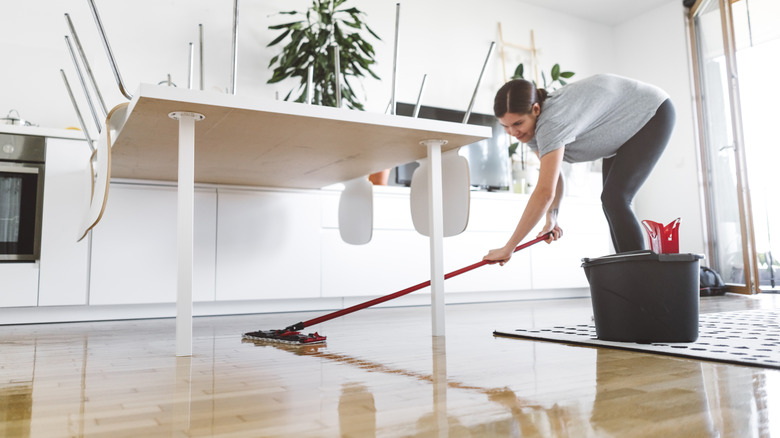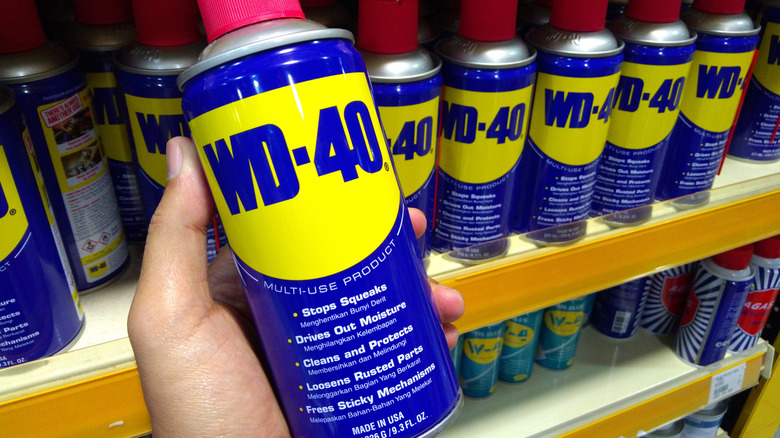Are Your Wood Floors Too Shiny? WD-40 Can Help
Is your new wood floor making you feel more like you're on a basketball court than in your living room? You probably haven't considered it before now, but try some WD-40 to take a little of the shine off your polyurethane finish. Okay, sure, the lore that has grown up around WD-40 is so powerful that a skeptic could be forgiven for being, well, skeptical about all the wildly varied claims people make for it. We know WD-40 does wonders when it comes to cleaning or de-scuffing floors. But what about making your too-shiny floor a little more subtle? You might think that's just the kind of promise-everything claim you'd expect from a snake oil salesman (or a fish oil salesman, perhaps, since false rumors claim WD-40 is made from fish oil). But it's actually true, even if it's not quite so apparent why.
The WD-40 company itself verifies that this is a real thing. In their list of 2,000+ uses for the product it states, "Tones down the shine of polyurethane," though it doesn't specifically mention floors. The best way to achieve less-shiny floors is to spray WD-40 on a cloth and use it to wipe the floor. Less is more, as the product can make things quite slippery.
How WD-40 reduces shine on polyurethane
The WD-40 company is tight-lipped about the chemical makeup of its flagship product, so we don't know the secret to exactly how it takes the shine off a polyurethane finish. But there are some clues, and they give you some insight into other ways to use the product — as well as when to avoid it. While we do know that WD-40 is about half mineral spirits, and that mineral spirits don't damage fully-cured polyurethane, it is possible that some other ingredient does minor surface damage to the clear coating. In other words, it dulls the shine a little.
Of course, it's also possible that some residue from the product does the dulling. After all, a lot of the work WD-40 does is attributable to residues it leaves behind. The company does advise against using it on copper and steel with polished finishes, but it doesn't actually damage either material, so it's evident that some product build-up does appear to have a dulling effect. So, heed the company's general floor-application advice and wipe away any excess that makes the floor slippery. The last thing you want to do is have your feet slip out from under you while you're driving to the basket... or even to the wastebasket.

